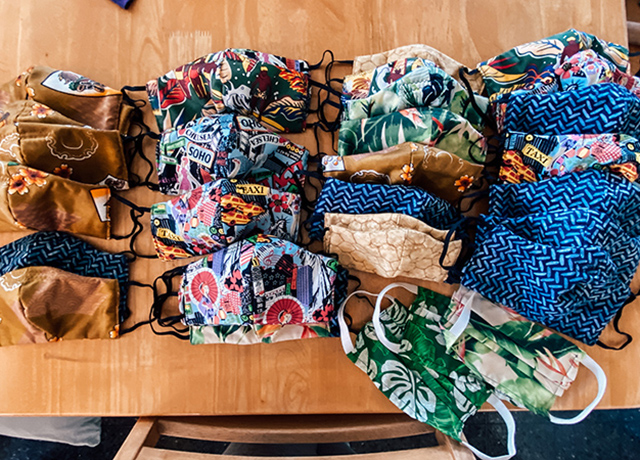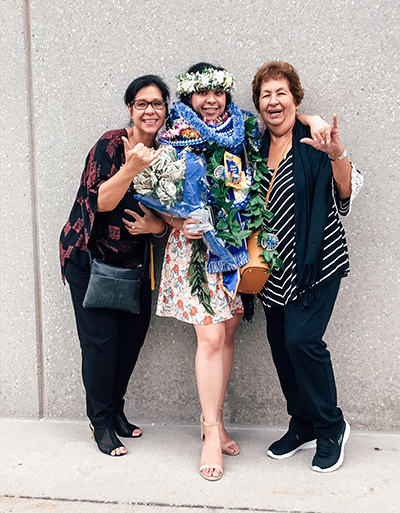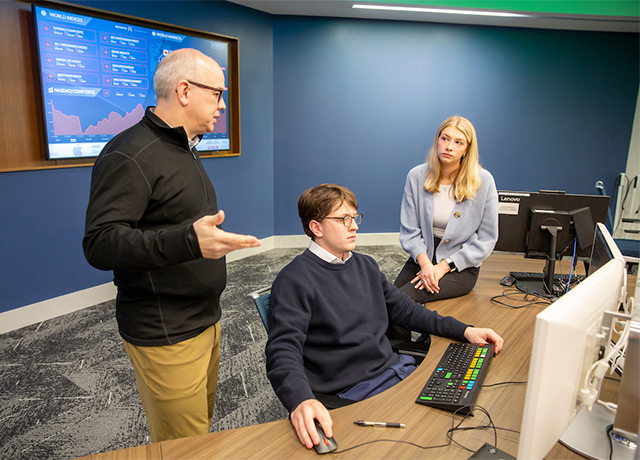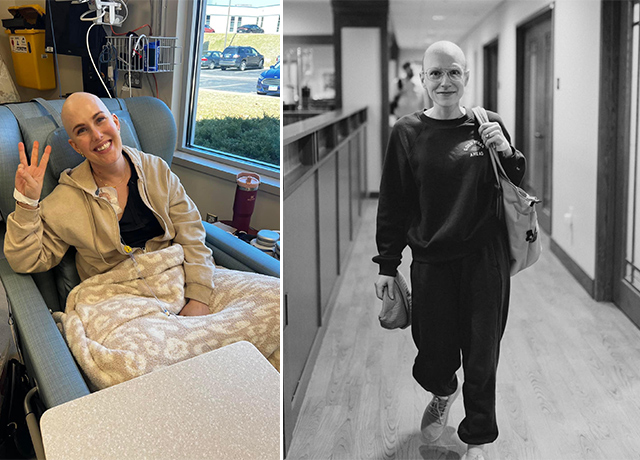Featured Testimonial About Creighton University
It’s just the three of us, in my grandma’s tiny kitchenette. It’s been great, but of course it can get old after several hours. (Laughs) You don’t want to be around each other too long, not when there’s scissors and needles around.

Ronni-Ann “Ronni” Ng, BS’19, was back home with her family, on the Hawaiian island of Oahu, well before the coronavirus quarantine hit. The psychology major and her mom live upstairs, her grandparents downstairs — a tight-knit family in close proximity, better suited than many to tackle the challenges of staying put.
Since the virus, Ronni and her mother are working from home. Ronni has been deeply anxious in recent days, looking for something — anything — to do. To distract herself, sure, but also to help others, to offer up something tangible to a world plagued with mounting uncertainty. As much as anything, she wanted to get her hands moving again.
The answer soon became obvious. The family had a sewing machine. Ronni, her mother and her grandmother all knew how to sew. They had some extra fabric. And word had it that Hawaii was about to institute mandatory mask-wearing in public.
Her family would make reusable cloth face masks.
It started out as making masks for just her family. Then it was making masks for her extended family and friends. Now it’s grown into a bona fide operation.

They’ve made about 100 masks so far, and are getting new orders by the day. The masks come in different styles, patterns and sizes (including small masks for children). The masks are not considered to be personal protective equipment (PPE)
Fabric has been increasingly hard to come by. A week into the family’s mask-making project, their town’s Walmart was out of sewing fabric. The only place to get fabric is the local Fabric Mart, which requires an appointment and is booked out a month in advance. So they’ve started using 100%-cotton bed sheets as their material. For the nose-forming tops of the masks, they’re using strips cut from aluminum foil pans, which serve this unlikely purpose quite nicely, so long as you take a rolling pin to them beforehand.
In addition to doing some good in the world, the project has brought a close-knit family even closer.
“We’re an assembly line,” Ronni says. “One of us — usually my grandma because she’s a perfectionist — will be sewing. One of us will be pressing fabrics, and one will be cutting patterns.
“It’s just the three of us, in my grandma’s tiny kitchenette. It’s been great, but of course it can get old after several hours. (Laughs) You don’t want to be around each other too long, not when there’s scissors and needles around.”
The experience of such close proximity, Ronni says, reminds her of her days living in the dorms at Creighton.
That’s not the only part of her Creighton experience that’s stayed with her.
“It’s always in the back of my mind: women and men for and with others,” she says. “As soon as I decided to start making masks, I didn’t have a second thought. It feels good to do service, and it makes me feel better when something is in my hands.”


